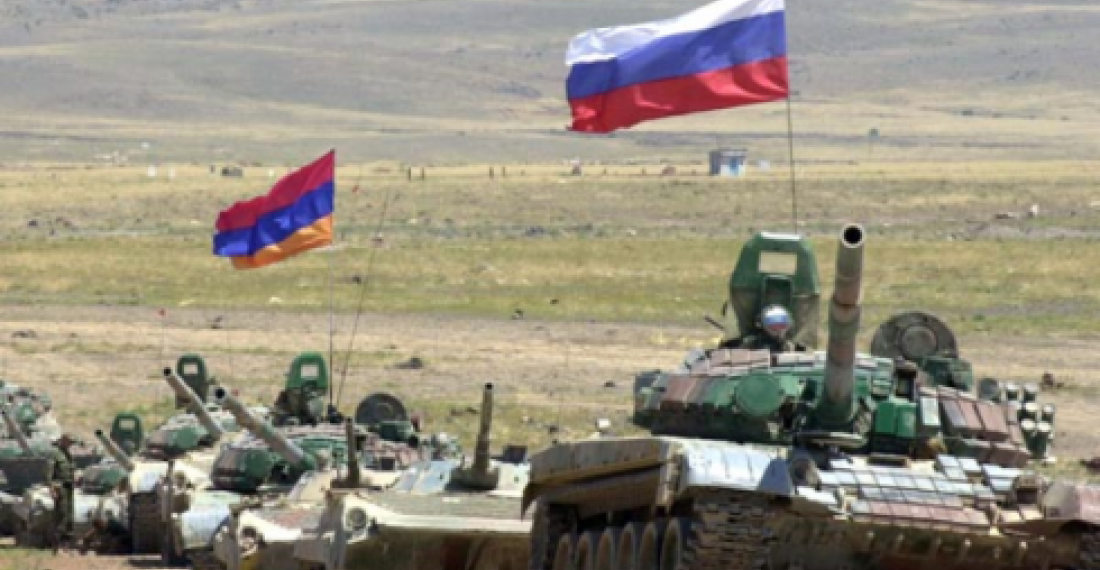The Russian newspaper Nezavisimaya Gazeta has reported that the Russian government has been taking steps to strengthen its military presence in the South Caucasus.
The newspaper reported that the number of personnel at the Russian military base in Gyumri in Armenia has increased two and half times over the last year, although the increase was mainly in locally enlisted personnel and the number of Russian troops remained stable at around 5000. The newspaper said that the Russian government had taken similar measures in its bases in Abkhazia and South Ossetia.. The newspaper cites possible escalation in the Nagorno-Karabakh conflict and a possible attack on Iran as reasons for the need to increase the state of military readiness of the bases in the South Caucasus.
In the meantime, a statement by the Press Service of the Southern Military District of the Russian Federation said earlier in the week that Russian military experts under the leadership of the commander of the brigade had been doing specialised training to work out practical steps to organize data exchange between users within common automated system management connections in the mountainous terrain of Armenia.
The training involved modern radio station based on KAMAZ-43114 and BTR-80, which were received by the Southern Military District in 2012, as part of the modernisation programme of the Russian Armed Forces.
The news comes at the same time that Azerbaijan has announced that it will increase its military budget this year to US$3.7 billion.
Tension between Armenia and Azerbaijan, who technically are still in a state of war with each other, is increasing around the issue of the opening of the airport in Nagorno-Karabakh.
On Friday the Cabinet of Ministers of Azerbaijan adopted a decision "On the use of airspace of Azerbaijan". According the the news agency APA the decision elaborates the procedure to be adopted by the Azerbaijani armed forces in case Azerbaijani airspace, which Azerbaijan interprets as including the airspace over Nagorno-Karabakh is violated. The decision permits the Armed Forces to shoot down a plane that violates the air space as a last resort. On the same day other reports in the Azerbaijani media stated that Mig 29 aircraft of the Azerbaijani Airforce were patrolling the airspace over the regions of Agdan and Terter that are currently occupied by Armenia.
Armenian Defence Minister Seyran Ohanyan said in Yerevan that Armenian Air Defence Forces will not tolerate the shooting down of planes and will ensure the security of civilian flights from Yerevan to Stepanakert. Ohanyan told reporters there is still a threat of hostilities between Armenia and Azerbaijan, but the analysis of the current situation shows there is little likelihood of a new war.
For the last four days Azerbaijani media has been reporting that Armenian forces had been shooting daily against Azerbaijani forces on the line of contact in the region of Agdam.
The situation in the region is being closely monitored by other parties. A senior official of the European Union said in Brussels last month that the EU had increased satellite monitoring of the military situation around the Nagorno-Karabakh conflict zone.
In a comment to APA, former senior US diplomat Mathew Bryza said
"I don't expect a war in the region as it is said in the reports of some non-governmental organizations. The war may start only after the deliberate decision of one of the parties. I think that Armenia and Azerbaijan are not interested in it. The establishment of confidence between the sides and coexistence of the two peoples are more acceptable than a war."
Commonspace.eu political editor said in a comment:
"It is difficult to reconcile the reality of what is happening on the ground, the bellicose statements of Armenian and Azerbaijani leaders and the true intentions of the parties. All sides are raising the stakes. In the meantime everybody seems to be taking precautions, just in case. This volatile situation is going to make 2013 a difficult one for the region unless there is a breakthrough in the peace negotiations."
source: commonspace.eu with agencies
photo: Russian and Armenian forces in a joint military exercise around the Russian militarty base in Gyumri.(archive picture courtesy of ArmeniaNow)







